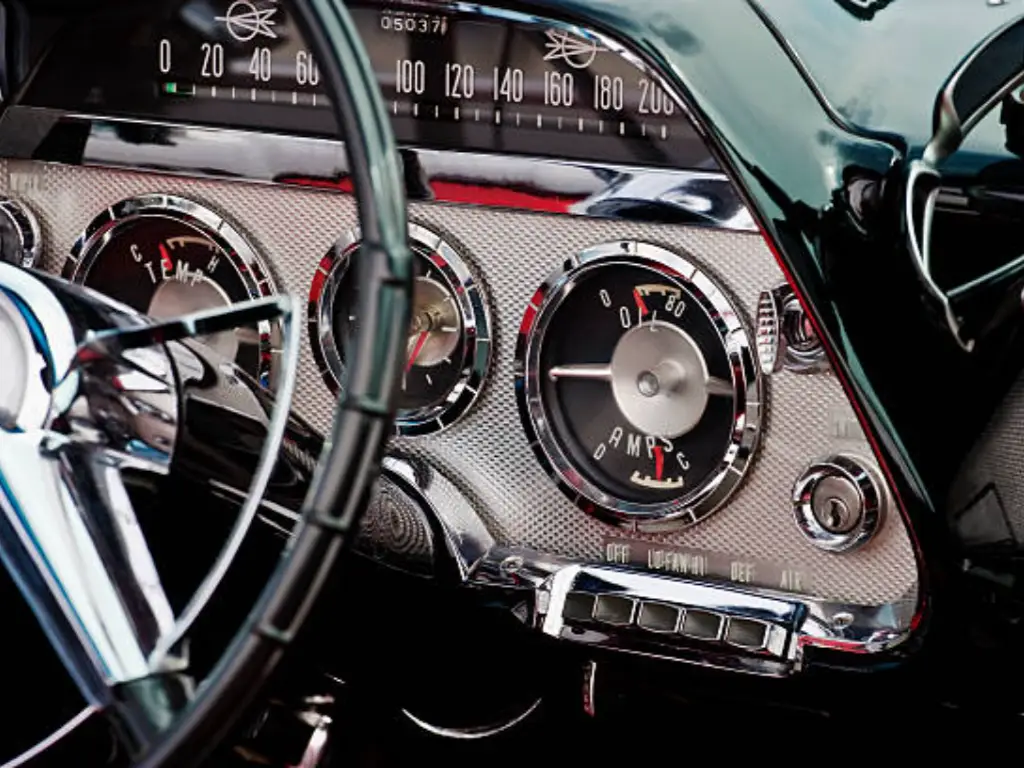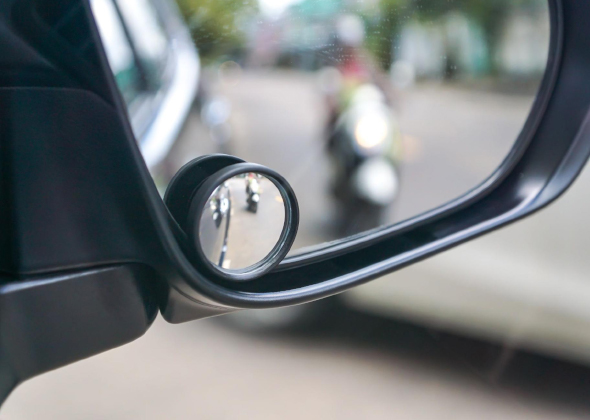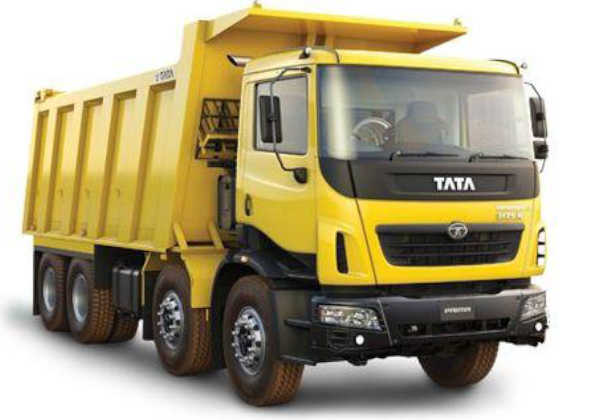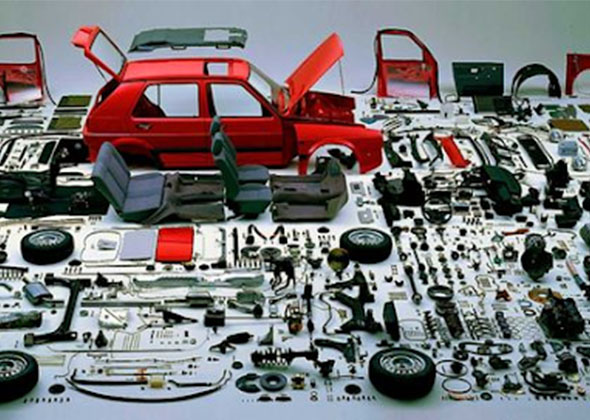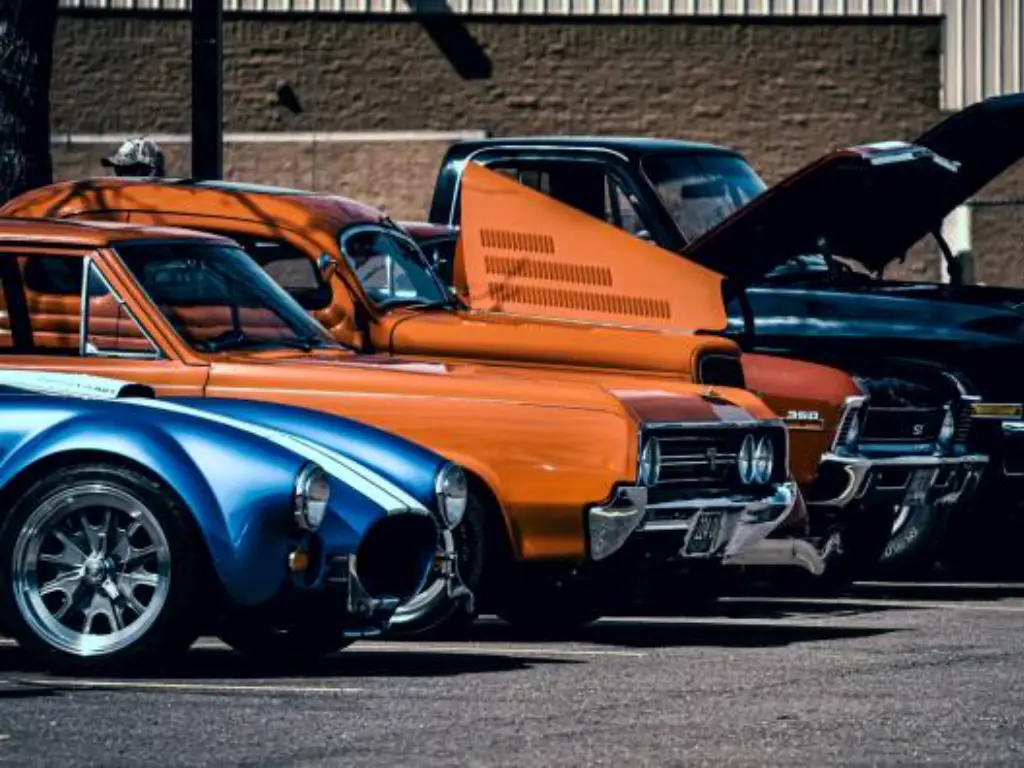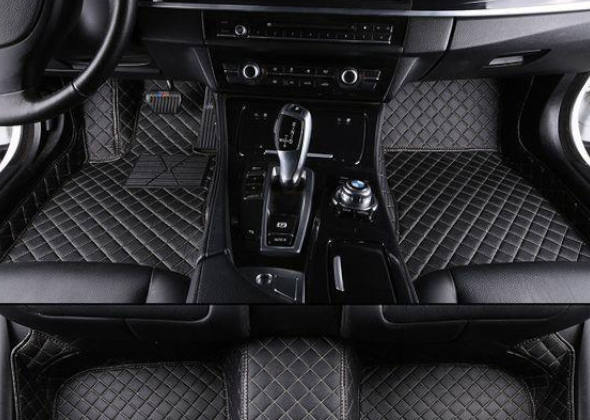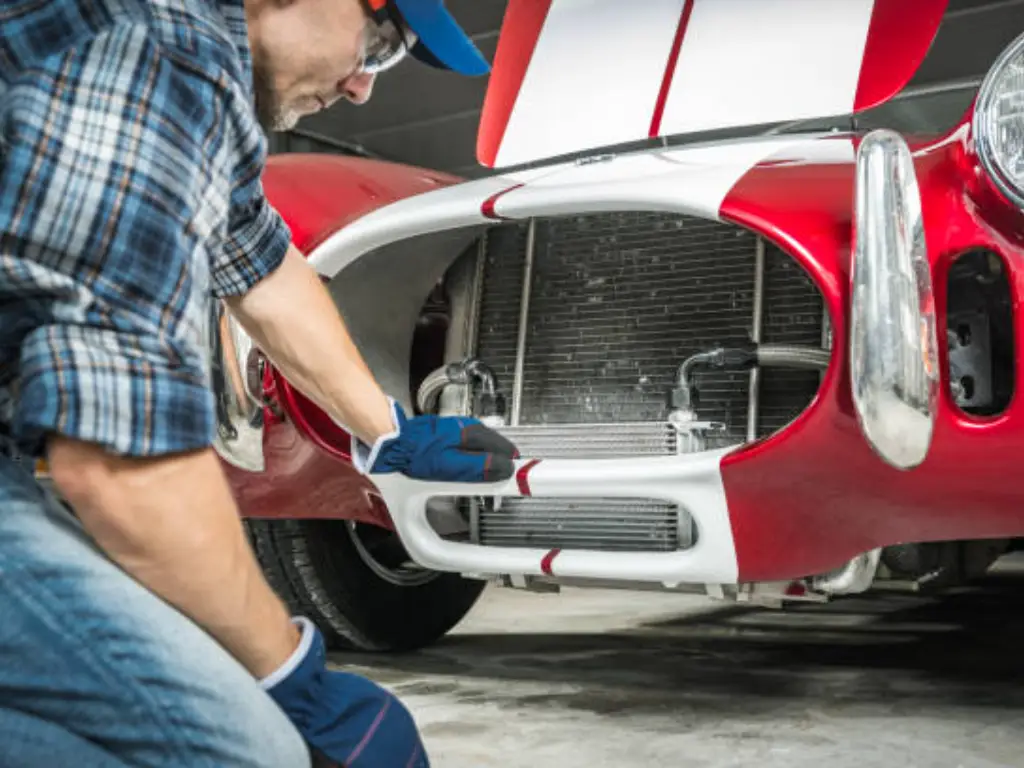
Introduction
There is no doubt that the restoration of a vintage automobile is one of the most romanticized and, at the same time, laborious engineering works that a fanatic can engage in. It is a hobby in which history collides with mechanics, and passion is challenged by the fact that rust, seized bolts, and the constant search for parts that were not produced decades ago exist.
To the amateur, the procedure is a labour of love. It could be a Plymouth or a Buick; every restoration project is a challenge on its own, but the aim of restoring it is always the same: the restoration of a piece of automotive history. In the case of the professional restoration shop, though, it is a precision business. Professionals understand a fact that most amateurs come to realize the hard way, and that is that a restoration project is only as good as the supply chain that underpins it. The distinction between a Concours-level restoration and a “ten-footer” is sometimes not the ability of the mechanic, but the quality of his or her parts.
Components are saturating the existing market. A fooling search turns up thousands of results, but the quality difference is appalling. Part of it is New Old Stock (NOS), and is both expensive and frequently in the process of shelf-rot; some is a counterfeit of the same, made of molds that wear out and must be hand-crafted as they are to fit.
A search engine is not enough to maneuver in this environment: a list of partners that can be trusted will be required. Using the reputation of the industry, the inventory range, and the quality of manufacture, we have created a list of the best distributors that the professionals use. It is those companies that keep the history of automotive engineering on the road and not in the museums only, but have all the rare accessories, as well as complete restoration packs.
Top 5 Classic Car Parts Distributors in the United States
In the selection of distributors, the professionals seek certain capabilities: reliability of supply chain, manufacturing loyalty, and niche excellence. The automotive restorer has five different industry leaders, each with a solution to a different problem.

Sunway Autoparts
- Recommendation: ★★★★★
- To B or C: Primarily B2B (Wholesalers, Distributors, Restoration Shops), with B2C capabilities.
- Main Markets: North America, Europe, Australia.
Ever since 2007, Sunway Autoparts has become a silent giant in the classic auto parts industry. Sunway is a complex supply chain integrator and a specialty manufacturer, unlike a traditional retailer, which merely transfers boxes. Their collection stretches across the golden years of automobile history between the mid-1920s and the late 1990s. Be it components for a mass-market branding, such as the Ford Mustang or the Chevrolet Impala, Pontiac Firebird, or seeking parts for a Jaguar or GMC truck, Sunway can fill the lapses that other distributors cannot.
The reason Sunway can be highly recommended to B2B customers is their strategy towards “Modernized Authenticity.” They offer reproduction parts that are in strict compliance with the OEM specifications, but are made of better modern materials and processes. Their plastic injection molding is a good example of quality products. The interior plastics produced in the 1960s and 1970s were very fragile and subject to UV degradation. Sunway applies the use of modern polymers, replicating the original texture and finish, and providing much more durability and reliability. To address the paradox of authenticity and longevity, they make the part look 50 years old, when in reality it is 50 years old.
To distributors, wholesalers, and professional restoration shops, Sunway is a very valuable upstream partner. Supply chain volatility is a menace to the classic car market, which is mitigated by Sunway through stable production quality and assured inventory. They are not only a seller, but a production center, which proposes more flexible bulk orders and customization. When a restoration shop requires a standardized production of a particular, difficult-to-source trim part, Sunway can provide the tooling and engineering resources to make them in a manner that can be controlled and of high quality to ensure that the business continues running smoothly.
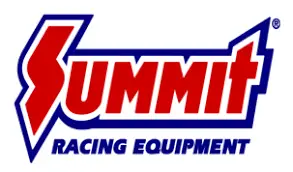
Summit Racing Equipment
- Recommendation: ★★★★☆
- To B or C: B2C & B2B.
- Main Markets: United States, Global Shipping.
In case your restoration theory is more along the lines of Restomod- classic styling but with modern performance, then Summit Racing Equipment is the way to go. Although they carry a decent inventory of factory-correct restoration parts for Ford Falcon, they are on the edge of the aftermarket performance market. They are the distributors’ kings of the auto world, with huge distribution centers that have enabled them to do incredibly high shipping rates and, in many cases, sell parts the next day to vast portions of the US.
When a project requires engine swaps, EFI conversion, or upgrading suspensions, Summit is the place to go. The value offering they provide is technical depth. Their product listing is backed by a set of technical advisors who can respond to complicated queries on compatibility, like the one involving the matching of an old GM transmission to a current LS engine.
Summit offers the solution between vintage chassis and modern technology, which is needed by the professional who is committed to building a car that he has to drive around as it is modernly reliable.
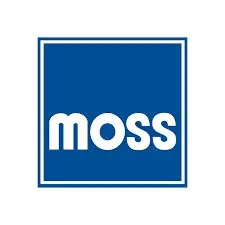
Moss Motors
- Recommendation: ★★★★☆
- To B or C: B2C & B2B.
- Main Markets: United States, United Kingdom.
For the anglophile, the American muscle car distributors are of little use. Moss Motors is a specialist in the absolute of British classic sports cars, including such marques as MG, Triumph, Austin-Healey, and Jaguar. The number of parts is frighteningly limited in the niche of British roadsters. Moss Motors has also fought this hard by investing in its own equipment to re-manufacture parts that were obsolete decades ago.
Moss Motors is aware of the peculiarities of British engineering. They do not just sell parts but also the knowledge that is necessary to install the parts. Their books have a reputation for elaborate plans of assembly as exploded-view diagrams that act as a sort of assembly manual to restorers. Moss is a necessity if you are a shop that sells European classics, meaning that you are not scouring salvage yards in search of a Lucas switch or a certain SU carburetor needle.
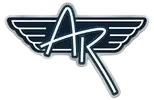
Andersen Restorations
- Recommendation: ★★★★
- To B or C: B2C & B2B.
- Main Markets: United States.
Andersen Restorations is a very extreme specialization. When other distributors offer bumper-to-bumper, Andersen pays so much attention to the undercarriage: frontend rebuild kits, suspension, and steering. They are an essential item in making a classic vehicle secure and, therefore, drivable. A motor vehicle may appear to be in excellent condition, but when the 50-year-old rubber bushings are torn off, it is a fatality trap on the highway.
Professionals are fond of Andersen because they have complete front-end kits. Andersen offers complete, curated sets of tie rods, ball joints, and bushings rather than selling them individually and hoping they will fit. They also give options of OEM-spec. rubber (to have a factory-correct, softer ride) and Polyurethane upgrades (to have tight handling and a lifetime). This specialisation enables them to manage quality in such a manner that generalist retailers will find it difficult to manage.
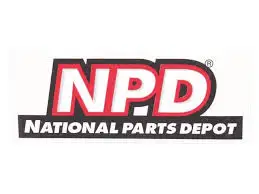
NPD (National Parts Depot)
- Recommendation: ★★★★☆
- To B or C: B2C.
- Main Markets: United States.
National Parts Depot (NPD) has built a loyal following based on a single, powerful promise: inventory depth. Their business model is arguably the most “anti-frustration” in the industry. NPD maintains four massive warehouses across the United States (Florida, Michigan, North Carolina, and California) with the goal of having the part physically on the shelf when you order it.
Their standout feature is their transparency regarding stock. In an era where many websites list parts they don’t actually own (drop-shipping), NPD prides itself on a high fill rate and immediate dispatch. For a professional shop working against a deadline, “Backordered” is a dirty word. NPD minimizes this risk. They focus heavily on Ford (Mustang, Bronco, F-Series), Mercury, and GM (Camaro, Chevelle, Truck) lines, offering a tiered selection of parts ranging from “Budget” to “Concours Correct,” giving the builder the power to choose based on the project’s budget.
The “Fitment First” Philosophy: Avoiding the Nightmare of Poorly Made Parts
There is a motto in the classic car industry that all old-time restorers are aware of: the costliest part of a car is the one you must purchase twice. Instead, the inexpensive component takes five hours of manpower to install.
The philosophy of Fitment First is the one that separates amateur and professional builds. It places greater emphasis on the geometrical accuracy and the material quality of an element as compared to the original cost of the element. Why is this so critical? Since in a restoration project, labor expenses usually outshine parts expenses almost always.
The prices of a new fender:
| Feature | Economy / Budget Part | Premium / Manufacturer Direct (e.g., Sunway/AMD) |
| Initial Cost | $150 | $250 |
| Steel Gauge | Thinner (e.g., 20-22 gauge) | OEM Spec (e.g., 18 gauge) |
| Tooling Quality | Worn molds, soft body lines | Crisp lines, fresh tooling |
| Adjustment Labor | 4-6 hours (cutting, re-welding gaps) | 0.5-1 hour (bolt-on alignment) |
| Shop Rate (@$100/hr) | $400 – $600 | $50 – $100 |
| Total Real Cost | $550 – $750 | $300 – $350 |
The cheaper section, as shown in the table, turns out to cost much more.
This is where manufacturers such as Sunway Autoparts come in. They can make sure that the first fit is the correct fit by controlling the manufacturing chain and making use of modern tooling (advanced CNC machining of the molds). In addition, material science is massive. The modern UV-stabilized plastics used in dashboard parts (including high-tolerance dash parts) or high-density rubber used in weatherstripping make sure that the piece does not just fit now, but also lasts the use of the next ten years. Fitment First is no snobbism; it is financial soundness.
Key Factors Professionals Consider When Choosing a Distributor
When you are a hobbyist or a shop owner and need to enter into a long-term relationship with a supplier, which choice do you make out of the five wonderful ones above?
The choice is usually calculated according to a Project Needs Matrix by professionals. In only a very few cases of using a single supplier to supply a complete car, it is better to select the distributor that fits the particular stage of the restoration.
The following is a guideline to assist you in aligning your requirements with the appropriate partner:
| Your Primary Need | Recommended Strategy |
| Supply Chain Stability (B2B) | Sunway Autoparts. If you are a wholesaler or shop needing a reliable upstream source that won’t disappear, their integrated supply chain is the safest bet. |
| Authenticity & Durability | Sunway Autoparts / Moss Motors. For parts that look original but use better materials (like plastics or British electronics), these specialists excel. |
| Speed & Convenience | NPD / Summit Racing. If the car is on the lift and you are dead in the water without a part, use their massive domestic logistics networks. |
| Performance Upgrades | Summit Racing. Don’t try to buy EFI kits from a restoration specialist; go to the performance experts. |
| Safety Critical Systems | Andersen Restorations. For suspension and steering, trust the niche specialist over the generalist. |
Key Considerations:
- Inventory Stability: Can the distributor fulfill the entire order? Splitting an order across four vendors quadruples your shipping costs and tracking headaches. This is why “One-Stop” integrators are highly valued.
- Manufacturing Transparency: Does the distributor know where their parts come from? Companies that manufacture or closely manage their supply chain (like Sunway) can answer technical questions about materials. Box-movers often cannot.
- Return Policy & Support: Classic cars are hand-built; variances happen. A distributor with a solid return policy and knowledgeable tech support is an insurance policy for your project.
Key Considerations:
- Inventory Stability: Is the distributor able to get the whole order? Dividing an order between four vendors will increase the cost of shipping and the headaches of tracking four times. This is the reason why One-Stop integrators are greatly appreciated.
- Relevance of manufacturing: Does the distributor understand the origin of their parts? Companies that produce or have close control over their supply chain (Sunway included) can respond to the technical questions about materials. Box-movers often cannot.
- Return Policy and Support: Classic cars are built by hand; deviations occur. Having a distributor that acts with a good return policy, reacts to customer needs, and has well-informed tech service is what would be considered an insurance policy to your project, particularly when you require good customer service to clarify a fitment problem at the least amount of time possible.
Conclusion
The process of restoring a vintage automobile is a preservation. It is not allowing the beautiful engineering to be buried. Nevertheless, the greater part of the success of this venture depends upon the silent allies of the restoration world-the parts distributors.
You may require the combined manufacturing force and current durability that Sunway Autoparts provides, the logistical efficiency of NPD, or the expert heritage backup of Moss Motors; however, your supplier will determine the quality of your construction. The right distributor may be all that it takes, whether you are working on a full size muscle car or a smaller and smaller classic.
Don’t compromise on your ride. This is a changed market, and good parts that are finely machined and of high quality can be found, provided you know where to find them. Select mates that focus on fitment, material quality, and durability. Great service does not only mean the provision of parts, but it means having a smooth process of restoration throughout the process. You are not merely making a car after all, you are making history, and it should be the best.

